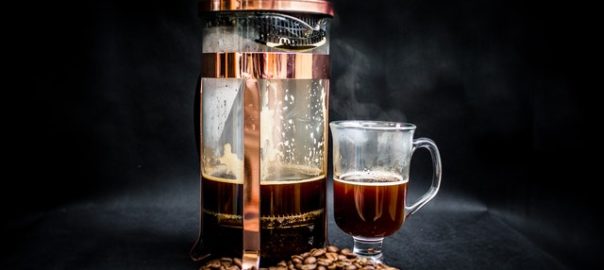I am Italian and I love coffee! I love its aroma in the morning especially if it comes from a Moka, a traditional Italian cafetière as it brings back so many sweet memories. Italians like their coffee strong, in a warm espresso cup and more than often drink it while standing. I find coffee extremely addictive so I keep it as a treat for the weekend. With an espresso in me I can go at 100 miles per hour and feel nicely wired, but when I take more or drink it daily for a few weeks I know I will have to pay for it …
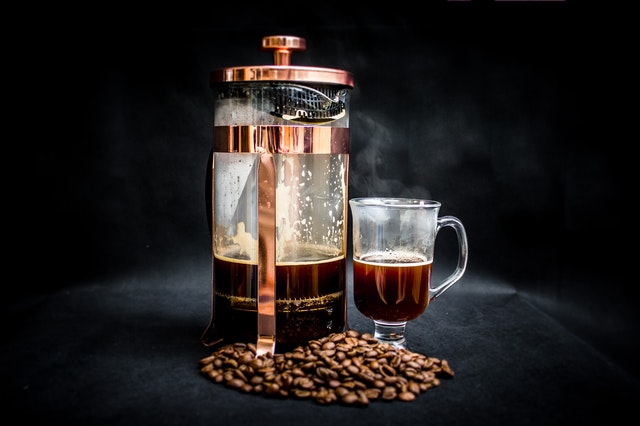
Coffee is not evil or inherently bad, at least not for everyone. We are all different and there is some research to support the consumption of a moderate amount of coffee daily. In fact drinking coffee may help to reduce the risk of certain digestive disorders, such as gallstone disease and pancreatitis.
Coffee consumption may also help reduce the risk of neurodegenerative conditions such as Alzheimer’s and Parkisons disease. There are quite a few studies that support this connection, but further studies are needed to prove a causality between coffee consumption and a lover risk of developing these conditions.
Coffee may also have some protective cardio vascular effects for women, it’s high in antioxidants and it’s delicious! But just because it has beneficial effects it doesn’t mean that having more coffee is necessarily better.
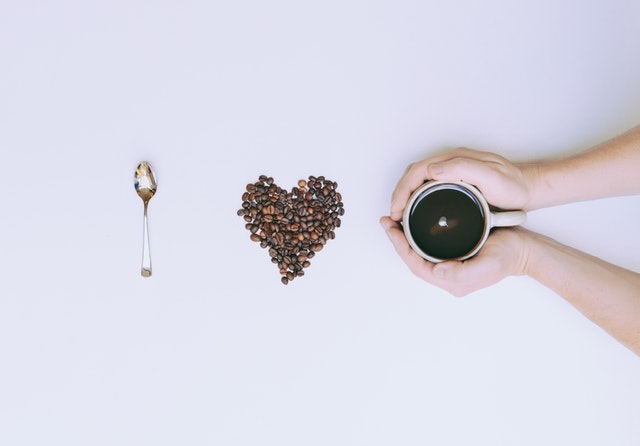
I believe that it is important to tune in and listen to what your body is telling you. At times, even with one coffee per day, I can feel wired up, on edge and rather anxious. My muscles often tense up and I can get different types of pains. To me, as a nutritionist, these are signs that I can’t metabolize caffeine very well and that I should give it up! Here are eight reasons for limiting your coffee intake or quitting altogether.
More restful and prolonged sleep
Some research studies show that daily coffee intake can alter the sleep cycle, causing restless, poor non-refreshing sleep and daytime drowsiness. Each person reacts differently to coffee and genetic make up will determine how affected they are.
For people suffering from anxiety and sleeplessness, it is worth trying being caffeine free and see whether it makes a difference.

One less Anxiety trigger
Coffee is a well known psychoactive and acts as an anxiety trigger by stimulating sensations that mimic anxiety such as increased breathing rate and faster heart beat. The body does not know that it is just the coffee, it only registers that it feels like anxiety and therefore it thinks it is anxiety! Consuming more than 200 mg of caffeine (more or less two cups of coffee) can increase anxiety and panic attacks in people sensitive to it. In fact “caffeine-induced anxiety disorder” is listed in the DSM-5 (Diagnostic and Statistical Manual of Mental Disorders, Fifth Edition).
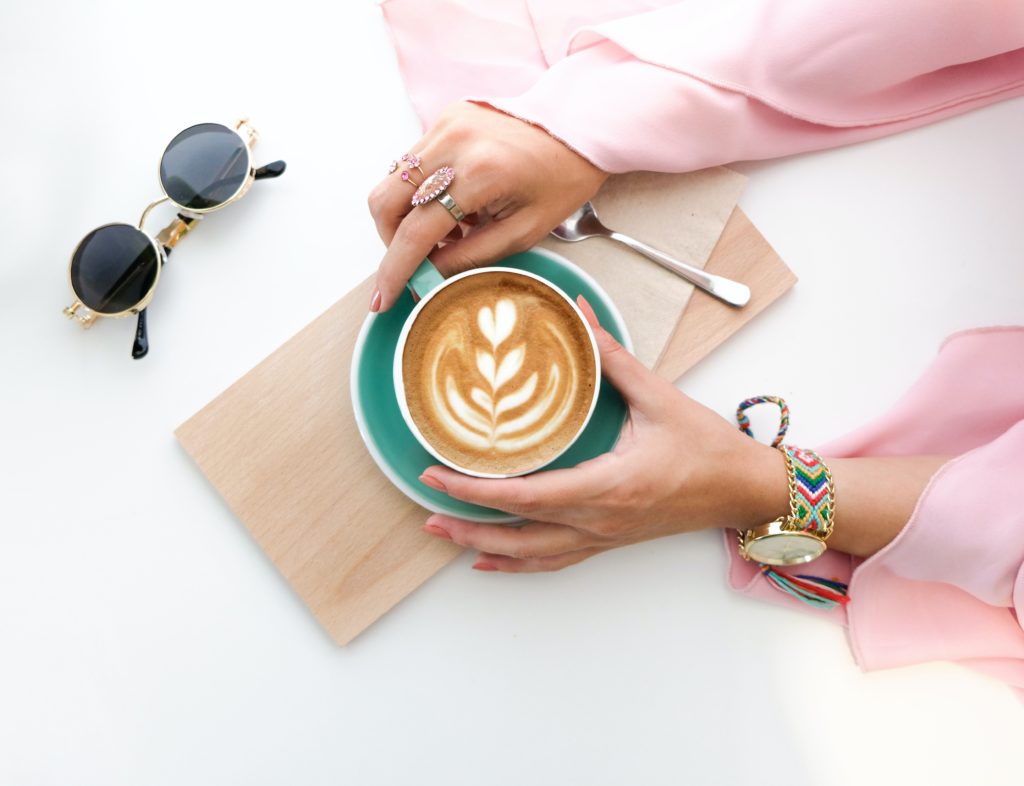
Better Hormonal balance
Women especially can be sensitive to coffee. The liver detoxifies caffeine using the CYP1A2 enzyme system, which is also responsible for initial metabolism of oestrogen during Phase I clearance by the liver. This is one reason caffeine can be metabolised more slowly in women taking oral contraceptives or postmenopausal hormone replacement therapy. Less work for the liver to do, better clearance of toxins and hormones for you!
Reduce your exposure to mycotoxins and pesticides
Organic coffee is a much better choice. Some studies analysed coffee brands and tested them for mycotoxins (very harmful fungi) and the results showed that roasted coffee has less mycotoxins. If you want to make sure that your coffee is free from mycotoxins there are brands that assures you their absence such as Mindful Coffee or the US brand Purity coffee.
If you choose organic your coffee will be richer in antioxidants and it is worth noticing that sometimes some of the side effects of coffee are due to the pesticides that are still present in the coffee grains. If you are sensitive like me you might experience palpitations when drinking some chemically laden coffee.
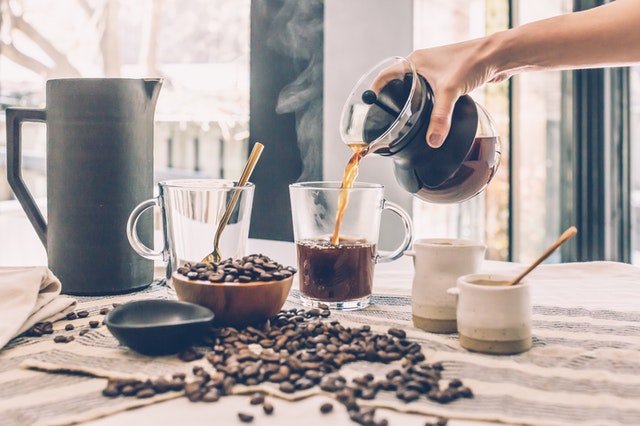
Less stress
Caffeine affects the activity of the hypothalamic-pituitary-adrenal (HPA) axis:The HPA axis influences the body’s ability to manage and deal with stress.
The adrenal glands secrete two major hormones: epinephrine and cortisol. Epinephrine, or adrenaline, increases respiration rate, heart rate and blood pressure; while cortisol frees up glucose as we need it in greater amounts during times of perceived stress. A clever mechanism that can become damaging for the body when we are stuck in chronic stress mode. Caffeine increases cortisol and epinephrine at rest, in fact levels of cortisol after caffeine consumption are similar to those experienced during an acute stress. Drinking coffee, in other words, simulates stress conditions for the body.
More balanced blood sugar
As already touched upon, caffeine stimulates stress hormones cortisol and adrenaline . One of the roles of cortisol and adrenaline is to mobilize glucose stored in the liver, and pour it in the blood stream so that it can be used for rapid energy needs (running for your life!!). This scenario can increase insulin resistance and this is not a good thing. It is a bit like when I keep talking and nagging my husband and he just stops listening to me, the body does the same thing, it tunes out becoming less sensitive to insulin, meaning more circulating glucose, which in turn would mean more insulin release, and so on.
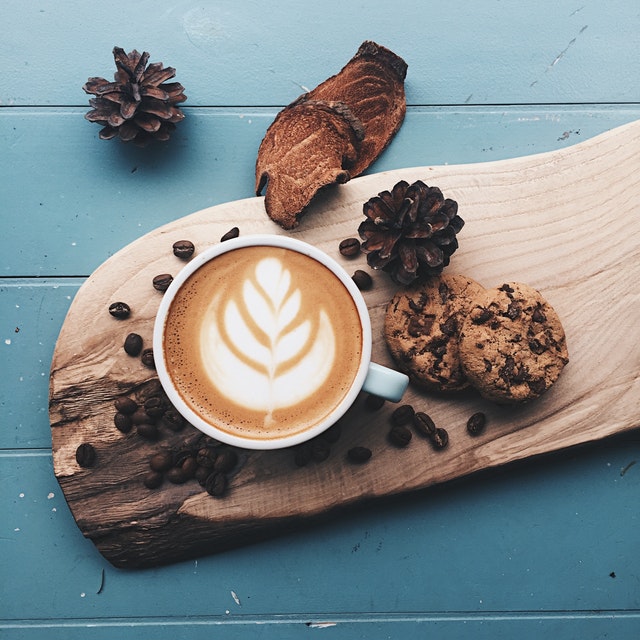
Lower blood pressure
Caffeine seems to have temporary effects on blood pressure keeping it a bit higher due to its effect on the nervous system. This effect is more so on people that don’t drink it regularly and are not used to it.
Positive effects on brain function and mood
Elevated blood sugar and insulin can create imbalances in the brain which can lead to mood problems such as mild depression, irritability, lack of concentration and learning and lack of motivation.
Some people with persistently high glucose can experience a “fuzzy brain”, and memory loss. If we add the potential vitamin B and iron (both essential for energy) deficiency that coffee consumption can create we can see how easy it is to be in a coffee loop where one feels the need to have coffee to keep functioning properly.
Drinking coffee in large quantities throughout the day, especially with sugar and perhaps a bit of chocolate added to high levels of stress coupled with lack of exercise is a ticking time bomb ready to cause havoc within body and mind!
We do however all respond differently. If you are prone to anxiety and panic attacks I suggest you keep track of your lattes, espressos, Chai lattes and any other caffeine containing drinks and pay attention to what is happening after you drink them.
Don’t forget to add all the other sources of caffeine that you consume such as colas, chocolates, some pain medications, energy drinks and teas.

Good questions to ask yourself are:
- Do you feel good for a while, then shaky and irritable?
- Do you notice any pain or other kind of physical distress?
- Do you find you get more bloated if you drink coffee?
If you’re experiencing any of these symptoms then it is time you taper yourself off coffee and caffeine slowly. As a rule most people see improvements in their anxiety levels. Perhaps you want to keep reading and try some of the coffee substitutes or semi-substitutes that I have been exploring in the last few months. Watch out for my next article: Coffee substitutes and benefits of having them
By Silvia Giunta BSc (Hons) LCHE Rshom DipNT, CNHC, BANT
Registered Nutritionist ®,
Please note this article doesn’t include all the available research on coffee as that would be an impossible task, but highlights findings based on my personal experience and the consultation of some research papers. The content of this article is not meant to substitute medical advice and it is for education only. If you wish to have more information and references to the research paper used please do contact me.

